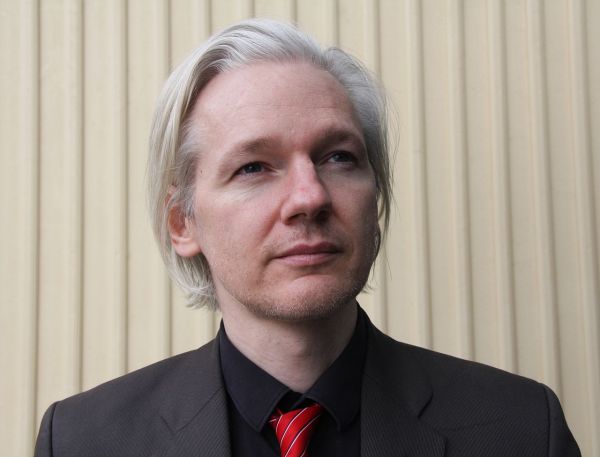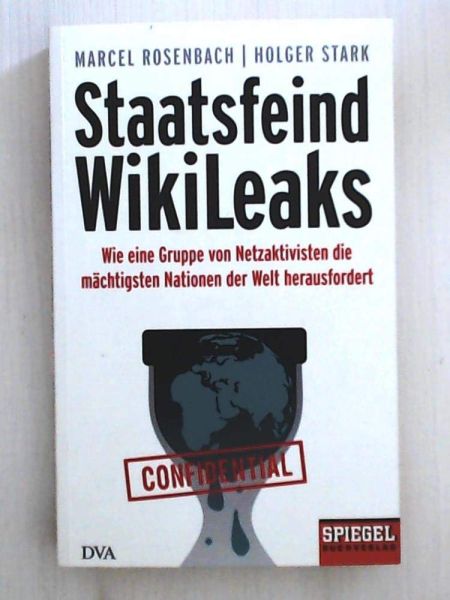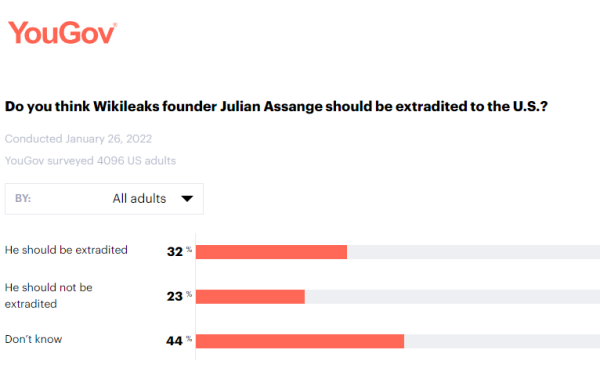The Motives of Julian Assange
The Motives of Julian Assange
Wikipedia's 32-page article on Julian Assange reports that he started his computer-hacking career at age 16, using the handle "Mendax". In 1991, cyber-security at Nortel, a tele-communications firm headquartered in Canada, caught up with Assange. The Australian Federal Police arrested him and charged him with 31 counts on hacking and related crimes. He had to pay a fine and a penalty, but was not jailed because of "his disrupted childhood."
How so "disrupted"? I wondered. Unfortunately Wikipedia did not explain how, except to attribute their claim to three sources. I checked the sources in the end-notes of the article, but none of them said much about Assange's disrupted childhood; but it has had a lasting effect on him. NBC News on-line, for instance, published an article titled "From Teen-hacker to Secrets-leaker." It states that "close associates of Assange paint a picture of a man who can be brilliant and charming one minute, insufferable the next, who has alienated many . . . and whose erratic personality risks undermining the mission."
Wikipedia reports that the British government imprisoned Assange in 2019, and that he remains in prison as of this writing. Given Assange's "erratic personality," his associates worry that they could share his fate. This risk increased markedly after Assange's Wikileaks posted countless confidential government communications in 2010. He went on the run, not staying in the same place more than a day or two, relying on his associates to keep Wikileaks moving forward.
My reader can log onto Amazon-books and scroll through the many selections about Assange and Wikileaks that have appeared in recent years. I would also like to suggest Staatsfeind Wikileaks, a book in German by two reporters who work for the Der Spiegel news magazine, Marcel Rosenbach and Holger Stark.
German media took an interest in Wikileaks because much of the leaked material involved secret communications between the State Department's Washington offices and the American Embassy in Berlin. The communications from the Embassy sometimes included unflattering comments about German political figures. One message, for instance, gave this assessment of the Chancellor Angela Merkel: "Merkel is methodical and pragmatic but risk-averse and seldom creative."
Wikileaks also published uncomplimentary material about American wars in Afghanistan and Iraq, which humiliated the American public and fueled the Obama administration's everlasting hatred for Assange. Staatsfeind Wikileaks quotes Assange saying rhetorically, "Only if citizens comprehend the plans and behavior of their governments can they make an informed decision about whether to support their governments." Among his associates, however, Assange has said, "I want to spit in the soup-bowls of the powerful." He has an unofficial motto, "Let's make a little trouble."
But he only spits in the soup of freedom-loving nations. He says almost nothing about nations like Russia and China, African despots, or drug-lords. In order to truly understand Assange, a reader has to return to the theme of his "disrupted childhood." I will find out more about that and report on it in a future post, with help from Staatsfeind Wikileaks.
I do not think, at any rate, that most Americans are fooled by Assange and Wikileaks. In an opinion-poll sponsored by YouGov, the divided American public expresses most of all an inability to sort out the facts of Wikileaks. Perhaps I can help them understand that the posture of the United States is a lot like that of most freedom-loving nations, inasmuch as it has to protect the public.
The novel The Spy Who Came in from the Cold by John le Carré, for example, explains it as well as any government spokesman: "We do disagreeable things so that ordinary people can sleep safely in their beds at night. . . . I mean, you can't be less ruthless than the opposition simply because your government's policy is benevolent."
The YouGov. poll suggest that many Americans already understand this, and that they feel less safe because of Wikileaks. Really all Assange has done is humiliate the United States. Soviet agents did this during the Cold War. If a Soviet agent got hold of embarrassing communications between Allied nations, he would leak it to a newspaper to embarrass the Allies. The Soviet agents were told by their controllers that their goal should be to "mess up policy."
The Soviet espionage service had psychologists who did profiles of prospective agents in order to monitor the candidates' resentment and envy. This mattered to the Soviets more than the candidates' loyalty to Communist Party ideology. If the Soviet espionage service existed today, it would have correctly gauged the influence of Assange's "disrupted childhood," recruited him, and turned his envy and resentment into concerted action against a freedom-loving society. He would have made the perfect Soviet agent.




